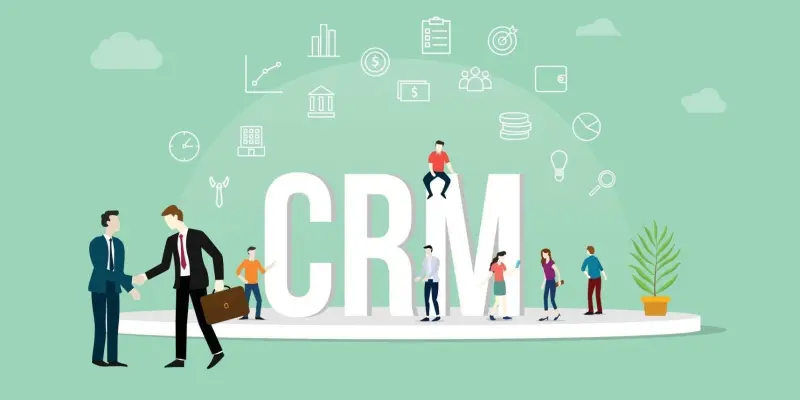In the rapidly advancing technological landscape, the role of Customer Relationship Management (CRM) platforms in charity fundraising initiatives cannot be overstated. Charities harnessing the power of CRM systems to manage donor relationships stand to gain significant advantages. However, a notable divide persists between the potential benefits of these platforms and their current utilization in the charitable sector. Data suggests that a substantial number of charities are yet to effectively leverage CRM capabilities. This article explores strategic approaches for charities to bridge this gap, drawing insights from established research, particularly focusing on Blackbaud’s Fundraising Software Evaluation Guide.
Addressing the Complexity of CRM Options
Evaluating Distinctive Features and Capabilities
The multifaceted nature of CRM offerings presents both opportunities and challenges to charities. Each CRM system is designed with unique features that cater to specific organizational needs. This diversity, while beneficial, makes the selection process complex for charities. It demands a thorough understanding of each system’s capabilities to ensure alignment with organizational goals. Charities must systematically evaluate these options, considering both their current operational needs and future aspirations to choose a CRM system that promises long-term success. The evaluation process should encompass an assessment of functional capabilities, integration potential with existing systems, and user-friendliness to ensure comprehensive utility.
The Critical Decision-Making Process
Selecting the appropriate CRM vendor is a decisive step in enhancing a charity’s fundraising efforts. Blackbaud’s guide underscores the importance of rigorously evaluating potential CRM providers. This involves asking pertinent questions regarding implementation timelines, data security measures, and the provider’s post-deployment support systems. Understanding these elements supports informed decision-making and avoids pitfalls that may compromise fundraising initiatives. Implementation timelines, in particular, are important to manage expectations and ensure a smooth transition to new systems. An effective plan mitigates operational disruptions and facilitates quicker adaptation, aiding charities in maintaining their fundraising momentum.
Prioritizing Key Considerations in CRM System Usage
Ensuring Robust Data Security
Data security remains a primary concern for charities as they are responsible for safeguarding sensitive donor information. With increasing incidents of data breaches, charities must prioritize security when considering CRM systems. In-depth discussions with potential providers about service level agreements, breach handling, and overall security measures are imperative. Charities have legal and ethical obligations to ensure the privacy of donor data, making it essential to select a provider that adheres to the highest security standards. This vigilance not only protects data but enhances trust and credibility among donors, thus supporting sustained fundraising success.
Comprehensive Post-Implementation Support
Successful CRM implementation does not end with deployment; ongoing support is crucial to realizing the system’s full potential. Many charities struggle to leverage post-implementation CRM capabilities. The availability of robust support services should therefore be a major consideration. This includes assessing the provider’s commitment to ongoing assistance and training, which ensures that organizational staff are well-equipped to use the system effectively. An active support partner is invaluable in ensuring that fundraising goals are met and that the CRM system continues to align with evolving organizational needs. This ongoing partnership facilitates continuous learning and adaptation, ultimately enhancing fundraising efforts.
Aligning CRM Choices with ESG Goals
Significance of Environmental, Social, and Governance Alignment
In the contemporary nonprofit landscape, aligning CRM strategies with Environmental, Social, and Governance (ESG) goals is gaining prominence. As stakeholders increase their scrutiny of ESG commitments, charities must select CRM providers that resonate with their sustainability and social responsibility initiatives. By incorporating these considerations into their selection process, charities can further their own ESG objectives and encourage vendors to adopt responsible practices. Raising these issues during vendor evaluations not only reflects well on charities’ commitment to broader goals but also enhances their reputation and attractiveness to socially conscious donors.
Leveraging Provider Success Records
Assessing a CRM provider’s track record with nonprofit entities offers valuable insights into their capability to meet charitable objectives. Charities face distinctive challenges, yet certain fundraising goals, such as donor retention and engagement enhancement, are universal and can be addressed effectively by well-selected CRM systems. By examining the provider’s past performance and success stories with similar organizations, charities can better predict how well potential systems might serve their specific needs. Success records provide assurance and inform decision-making, helping charities to expand their reach and maximize their fundraising opportunities effectively.
Charting a Strategic Path Forward
In today’s fast-evolving tech world, Customer Relationship Management (CRM) systems play a crucial role in charity fundraising efforts. These platforms provide charities with invaluable tools for managing donor relationships, often leading to enhanced fundraising outcomes. Nonetheless, there’s a clear gap between the untapped potential of CRM platforms and how they’re currently being used by many charities. Evidence indicates that numerous charitable organizations have yet to fully capitalize on the benefits CRM systems offer. To bridge this gap, it’s essential to explore strategic approaches for better integration and use of CRM technologies in the nonprofit sector. This article delves into these strategies by referencing established research and methodologies, particularly spotlighting Blackbaud’s Fundraising Software Evaluation Guide. Blackbaud, a leader in cloud-based solutions, offers insights into implementing CRM systems effectively in charitable settings, ensuring organizations can reach their fundraising objectives while fostering stronger relationships with donors.

